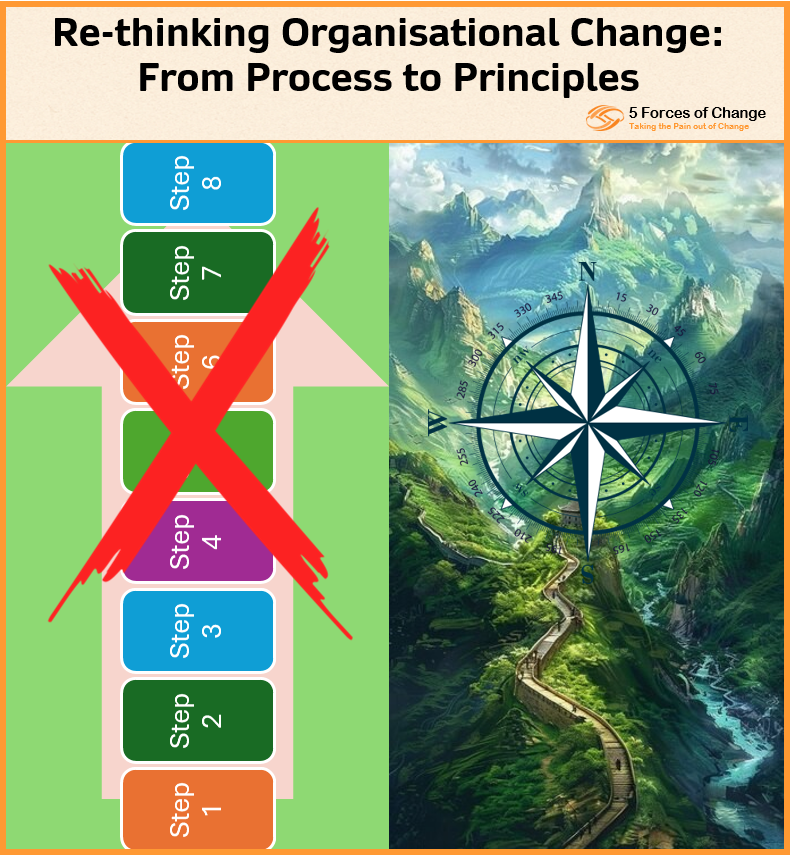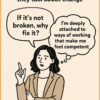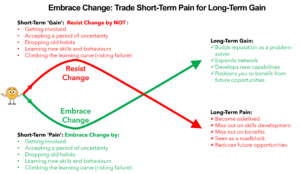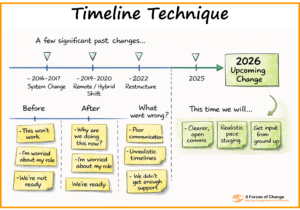We often treat organisational change like it’s a neat sequence of steps. But real change rarely behaves that way.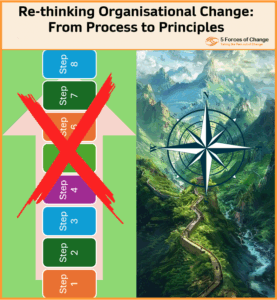 It’s not a process to control; it’s a human journey to navigate. One shaped by emotion, uncertainty, motivation, and resistance. It is time to shift our thinking from a process-led approach to using Change Principles as our guide.
It’s not a process to control; it’s a human journey to navigate. One shaped by emotion, uncertainty, motivation, and resistance. It is time to shift our thinking from a process-led approach to using Change Principles as our guide.
What that Means in Practice
The illusion of control – Overly rigid change plans can actually block progress. They create false certainty and leave no room for adaptation.
The human element – People are the engine of change, and their reactions aren’t linear. Psychology, trust, and ownership matter more than ticking boxes.
The need for change principles over process — A fixed methodology won’t get you through the complexity of real-world transformation. Guiding principles will.
What’s the alternative? Change Principles
Don’t reach for a map. Use a compass. Anchor your approach in psychological insight. Focus on creating ownership, managing emotion, and helping people readjust their thinking. Be guided by change principles.
Change is accelerating and rigid change plans can become obsolete overnight. Top-down mandates create resistance. People need to feel heard first and involved second.
Lasting change isn’t something you roll out; it’s something you co-create.

